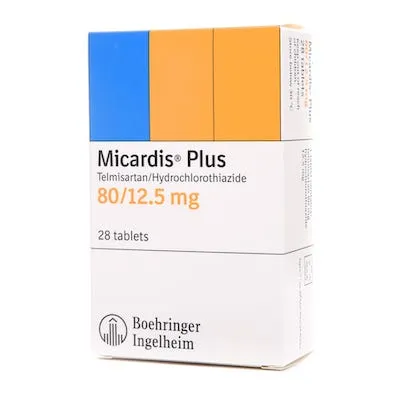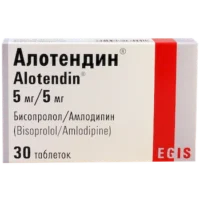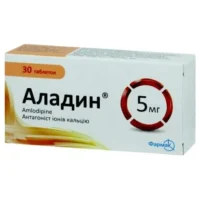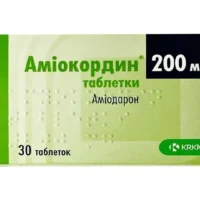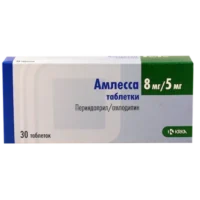Description
Micardis Plus (telmisartan) Tablets 80 mg/12.5 mg. №28
Ingredients
- Active ingredients: Telmisartan 80 mg and Hydrochlorothiazide 12.5 mg.
Dosage
- Dosage: The recommended dose is one tablet once daily.
Indications
- Indications: Micardis Plus is indicated for the treatment of essential hypertension in adults.
Contraindications
- Contraindications: Do not use Micardis Plus if you are allergic to telmisartan, hydrochlorothiazide, or any other ingredients in the product.
Directions
- Directions: Take Micardis Plus exactly as prescribed by your healthcare provider. Do not exceed the recommended dose.
Scientific Evidence
Micardis Plus combines telmisartan, an angiotensin II receptor blocker, with hydrochlorothiazide, a thiazide diuretic. Telmisartan works by blocking the vasoconstrictor and aldosterone-secreting effects of angiotensin II, leading to vasodilation and reduced blood pressure. Hydrochlorothiazide enhances the diuretic effect, further lowering blood pressure. Clinical trials have demonstrated the efficacy of telmisartan in reducing blood pressure and cardiovascular events, making it a valuable option in the management of hypertension.
Additional Information
Micardis Plus should be used with caution in patients with renal impairment or hepatic dysfunction. It may cause dizziness or lightheadedness, especially during the first few days of treatment. Monitoring of electrolytes and renal function is recommended during therapy. Inform your healthcare provider about all medications you are taking to avoid potential drug interactions.
- Studies have shown that telmisartan not only effectively lowers blood pressure but also has additional cardiovascular benefits, such as reducing the risk of stroke and myocardial infarction. The combination of telmisartan and hydrochlorothiazide in Micardis Plus provides a comprehensive approach to blood pressure control, addressing both volume and vascular tone regulation.
- Clinical trials comparing telmisartan with other antihypertensive agents have demonstrated its similar efficacy in lowering blood pressure with a favorable side effect profile. Telmisartan has also shown benefits in reducing cardiovascular morbidity and mortality, making it a preferred choice in the management of hypertension and associated comorbidities.

